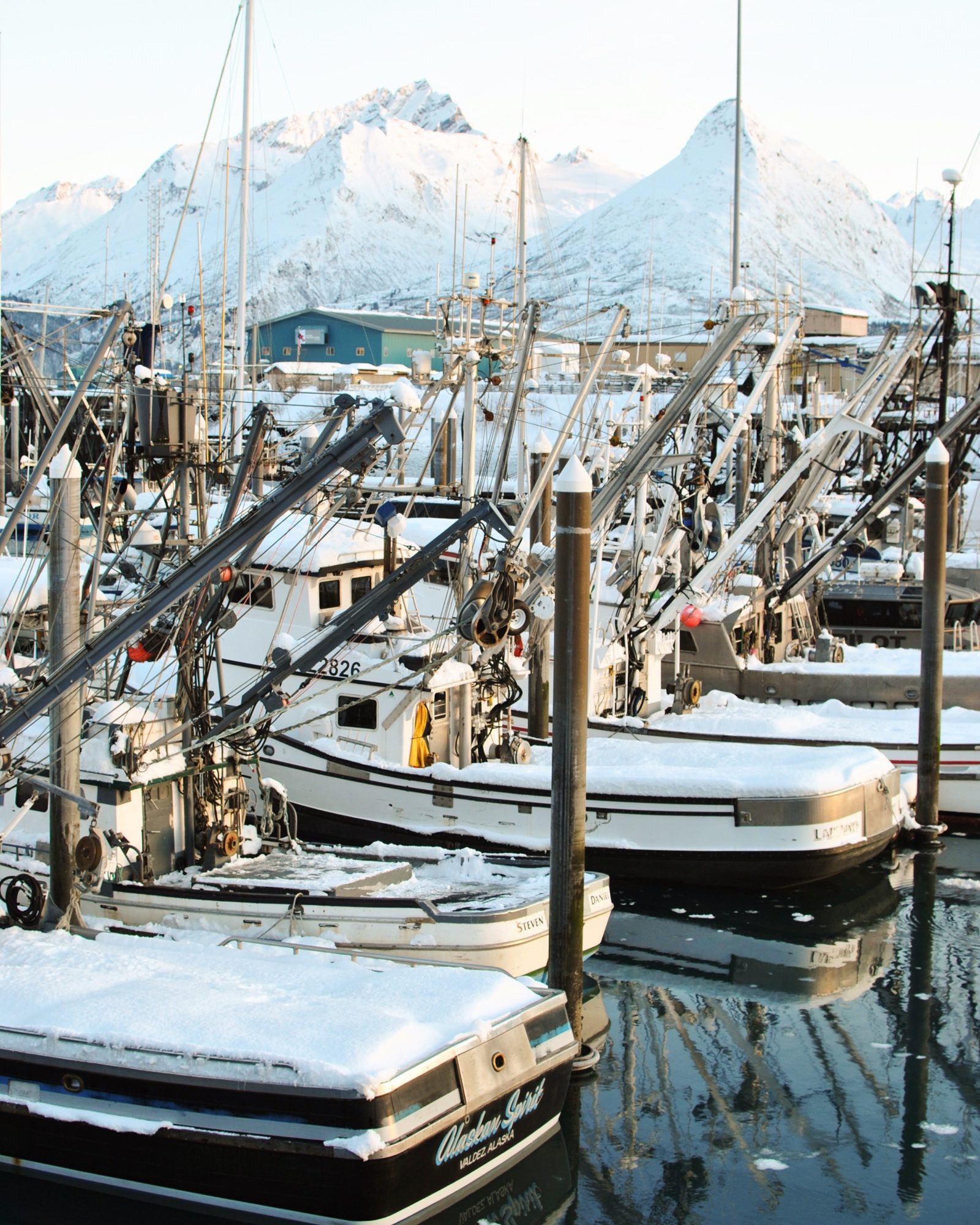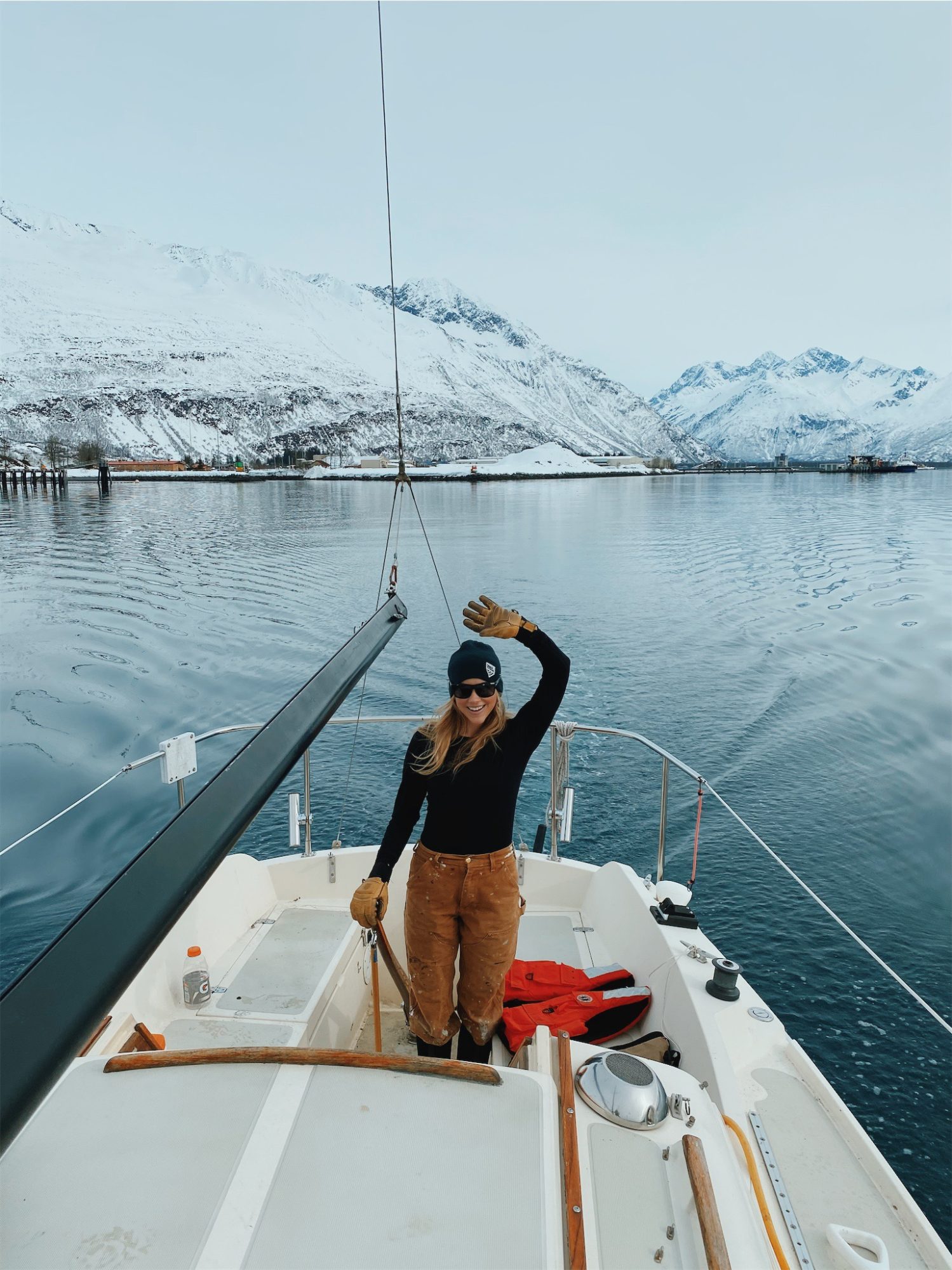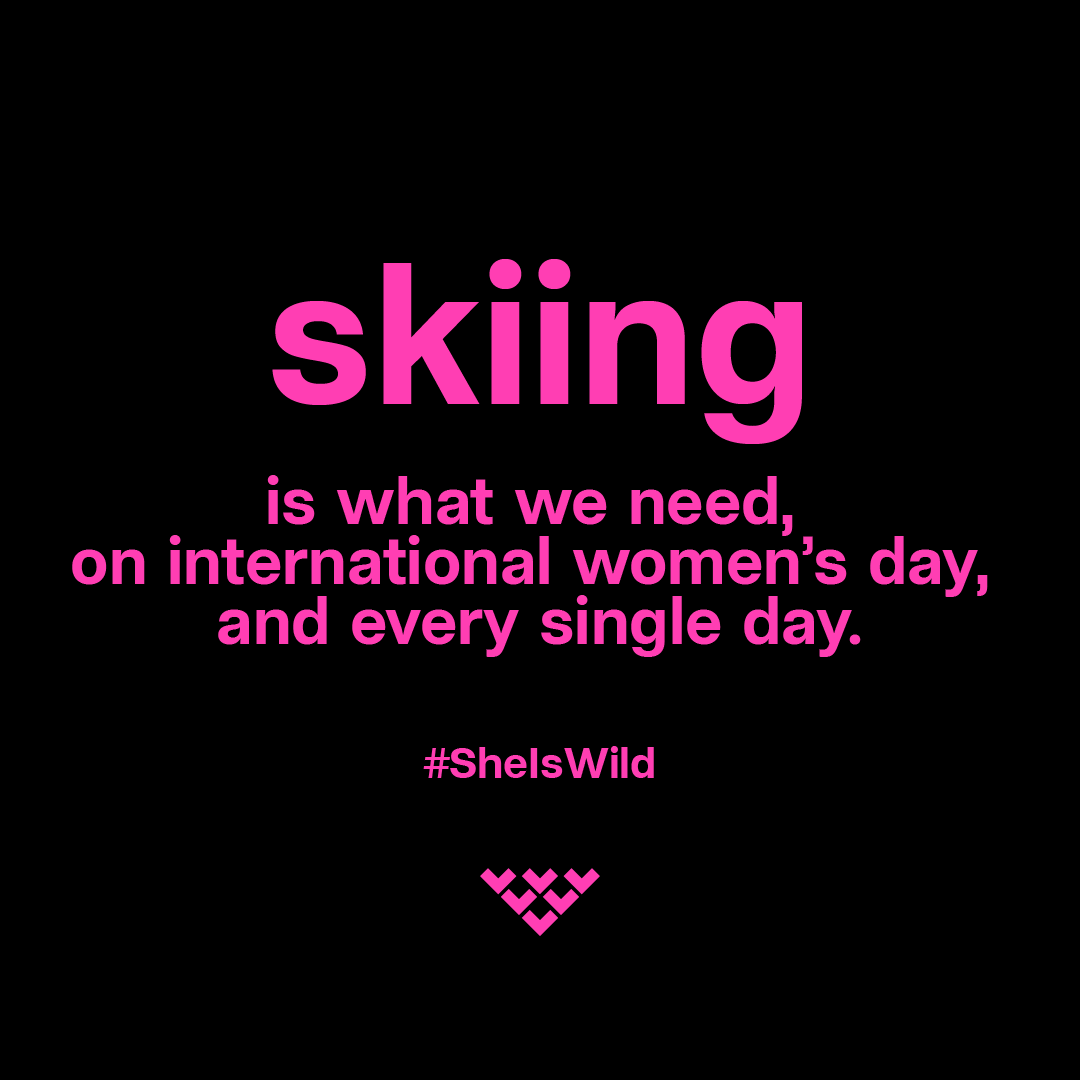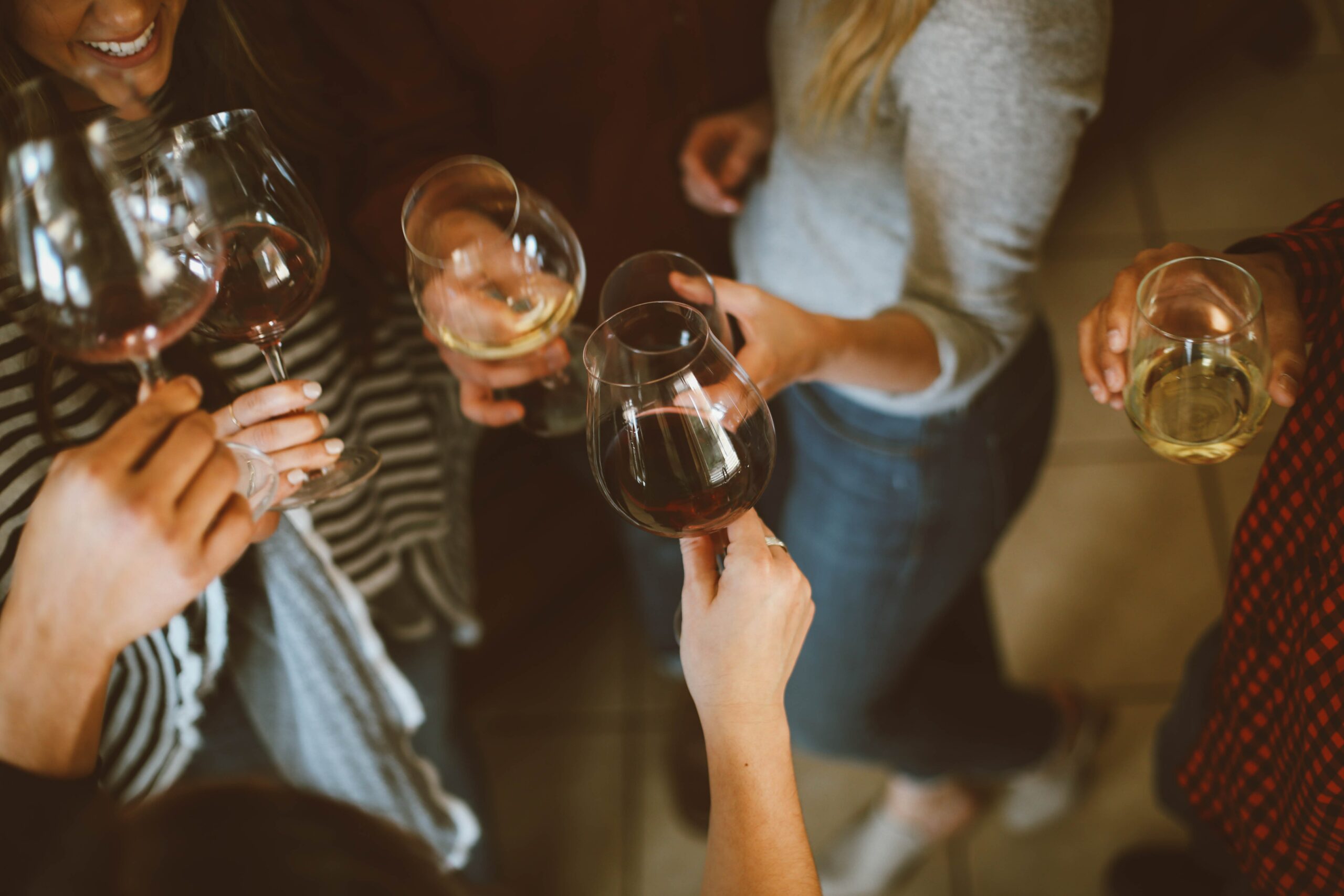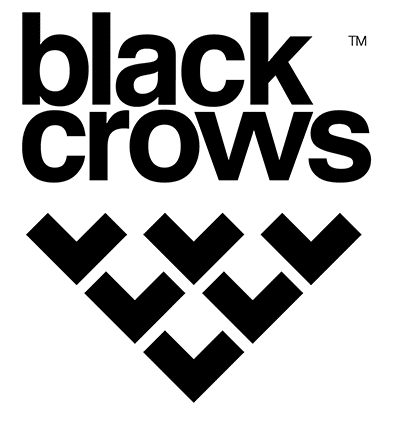Gabriella Palko, newcomer to the North American squadron, is a woman whose thirst for space and freedom led her to live at the end of the road, on a sailing boat in Valdez, Alaska. Photographer, columnist, radio host, emergency worker for civil security and not to mention her passion for skiing, both leisure and mode of locomotion; all in apparent solitude on the edge of terra firma, Gabriella has built herself a universe of encounters and interactions. Confined on her boat, while the pandemic turned her loneliness into isolation, she tells us how the virus has shaken her faith in the harmony of the world. Busy participating in an emergency cleanup for a fuel leak on the Valdez terminal, she sent us this intimate and fair text.
“Only twenty people at a time,” says the tram operator, marking the first entry of coronavirus into my immediate world. It’s early March at Alyeska Resort. The pandemic has felt away from the United States, let alone Alaska, until now. We load into the tram with much more space than usual and lap the resort on a bluebird day, basking in the long awaited sunshine of spring. But day by day the news gets worse. Seattle, one of our main transport hubs, starts exploding with the virus. Twenty people in the tram turns into nobody in the tram. Chairlifts only turns quickly into the entire mountain shutting down.
Time to go home.
I load up my truck and start the seven hour drive back. I stop in Anchorage for groceries and supplies like I always do- much larger (and cheaper) selection than our store at the end of the road. The scene is dismal. Stressed out employees and empty shelves, not a box of pasta in sight, let alone toilet paper. My stomach sinks and the seriousness of the situation kicks in. I pile in my staples, plus plenty of chocolate and extra wine for good measure, and get back on the road.
There is only one road to Valdez. The stunning 300 mile drive runs around the massive Chugach Mountains and glacier fields, through interior Alaska, and back down to the waters of Prince William Sound. Typically a very lonely ride in the winter, the road feels even more deserted now. There are no state travel mandates yet, but the feel of hunkering down floats in the freezing air. No superfluous cars on the road tonight. The sky melts into purple and the mountaintops radiate pink as I fly down the frost-heaved road, anxious to get home.
Now it’s dark. There are no lights on the road, I can count the illuminated businesses and gas stations on two hands. It’s all mountains, forest, pavement and stars. My favorite drive in the world, but it feels different this time. I pass three truckers in three hours, and my imagination begins to run wild.
I wonder how quickly this will spread here. The most sparsely populated state in the Union with just 1.2 people per square mile, this is the great land of social distance. But it comes with the caveat of limited and distant medical capacity. Glued to the radio, I begin to feel the weight of imminent economic collapse, ingest the manic uncertainty permeating the global atmosphere, and grieve those who have already passed. A lump forms in my throat thinking about my grandparents, my older friends, my great wise gurus. I fear for my medical and first responder friends, about to head into the front lines of this mess. A knot builds in my stomach over the small quantity of groceries I just bought, fearing a potential as I head into the middle of nowhere. Tears impair my vision as I think about my mom and brother across the continent, wondering when I’ll see them again. This can be a treacherous drive because of icy roads, deadly wildlife collisions, howling winds, negative temperatures, and zero visibility. The conditions are clear and calm tonight, yet I grip the steering wheel with white knuckles.
The next morning is cold and snowy in Valdez. I scurry back to my truck and grab my ski gear and grocery haul, carting my goods down the docks and onto my boat. I’m going on my third year of boat life here, having lived on a friend’s sailboat for a year and a half before buying my own last fall. Zephyr is my 25 foot fiberglass safe haven, cave of coziness, vessel of freedom. It enables me to live simply, and simple living is liberation.
Taking inventory of all my supplies and organizing them carefully in my tiny galley, my anxiety slowly dissipates. An otter floats by my window, its crunching of a mussel audible over the terrifying BBC World Radio I’m now turning off. I put everything away, clean up, and melt into my couch with a steaming cup of coffee. Now this feels more like prepping for a big solo expedition. Back on my turf, captain of my own ship, stock full of supplies I need- my wit, strength, and sensibility finally come waltzing back into my brain after days of unsettling fear.
Living alone on a boat, it’s normal for me to spend lots of time by myself. I revel in solitude. My mom has long described me as “self–entertaining”, I have never been bored in my life. But this is different, this is no longer by choice. Now there are no bars open, no coffee shops, no dance parties, après gatherings, chances to interact with friends and neighbors and lovers and strangers. But my relentless optimism sees grand opportunity for unfettered personal time, uncompromised self care, an open gateway to consciousness exploration, and utmost freedom from arduous societal obligations and expectations. I also recognize every sailor’s dream: ample time for that infinite list of boat projects.
Up first, curtains. With the sun staying up till 9pm now and more folks walking the docks to get fresh air during quarantine, my wide open windows need some covering. As the days roll by I’ve found myself laughing, crying, and dancing to myself more than usual, and nobody needs to see that. Not wanting to make an unnecessary trip to the store, I dig around the lazarettes and tool boxes and procure a couple yards of leftover fabric, halibut line, penny nails, and my embroidery supplies, and get to work. A few hours of trial and error later, I’ve assembled the finest of boat quarantine curtains I’ve ever seen. I laugh in pure MacGyver satisfaction. Pulling them shut I pour myself a full mug of red wine as a reward. Light my candles, kick back and relish in my newfound privacy. Forced creativity is one of the many beauties boat life; one must make do with what one has. I’m feeling better poised for the global hunker down.
#StayHome is the new global mantra. Fortunately my home moves, and the next morning I wake up to an ice free harbor for the first time in months. With a little coaxing, I fire my motor up and out of hibernation and cruise into the port. Port Valdez is a stunning glacial fjord, a narrow channel hundreds of feet deep surrounded by mile high mountains, with 13,000 foot peaks and iconic glaciers in the distance, all spilling out to the mighty Gulf of Alaska. Being out on the boat floods me in utter freedom and elation. For a few hours we leave the heaviness of the world behind and just float through the glassy water full of returning whales, migrating birds, and joyous porpoise. My soul is restored.
Fortunately I’m still able to go to work. I’m a host at the local NPR station, where I read news and weather and then play music for 48,000 square miles of Alaska. We’re the local emergency broadcaster, and therefore an essential service. The death and sick counts are a heavy addition to the newscast and I struggle to read them at first. I feel privileged and relieved to be able to communicate and connect with my listeners, my community, right now. Ample soothing music cued up, I always end my show with an upbeat song to keep us all moving forward.
I work 6am-1pm; a terrific schedule for playing outside, a terrible schedule for my night-owl self. Most parks, trail systems, beaches, and mountains are closed in the rest of the US, but here in Valdez the outdoors are pretty much all we have. We’re not really supposed to ski right now and Mother Nature seems to be encouraging this, as the snow is quite terrible lately. Hurricanes force wind storms have blown most of our powder away, which makes it easier to keep it mellow. This is not the time to take risks and create unnecessary work for the overstressed healthcare system. No room for avalanches or broken bones, nor high fives and shared beers. Mellow is just fine by me.
In most places, rain and snow constitute weather events. In Valdez, a sunny day is a weather event. One must take absolute advantage of bluebird days in this subarctic rainforest. The sun is shining today so I load up the truck and drive up Thompson Pass. Looking to hang more than ski, I hike up to a desirable overlook, dig myself a snow cave to shelter out of the wind, plop down with my book, and bask in the sunshine. “No man should go through life without once experiencing healthy, even bored solitude in the wilderness, finding himself depending solely on himself and thereby learning his true and hidden strength”. Agreed, Kerouac.
The days get longer and the news gets worse. I miss my friends. I want a hug. While I consider myself a fairly independent member of the species, Homo sapiens are social creatures with deeply evolved biological needs for connection, touch, and community. I facetime faraway family, chat with my radio listeners, and banter with boat neighbors across the docks to somewhat satiate the connection void.
Not all days are productive. After a particularly sluggish day, I drag myself out of the boat, load up my skis, and head to the other side of town for a walk. Grateful Dead blaring from my zippered pocket, I start my walk uphill. With each step my brain floods with endorphins, my lungs fill with fresh forest air, and my heart pumps with love. Grounded again. Strong again. Up top I sit and watch the sun set over the mountains, drenching the fjord in a magnificently peaceful hue of blue. Still, quiet, calm. Breathe in, breathe out…
Blue fades into black as I stuff my skins into my pack and hop turn my way down the gnarly but beautiful rock solid wind buff. Knees and skull chattering like mad, I cackle the whole way down.
I have always cherished my days here, but now more than ever before I’m flooded with immense gratitude for outside existence. Those occasional tortured nights lying awake questioning my relentless pursuit of an unconventional life on the water deep in the mountains are quickly subdued as soon I get out of bed and look out my (freshly curtained) windows. I have never felt more grateful for the path, obstacles, sacrifices, and opportunities that have led me to be sitting here on this sailboat. Every day I wish to share this peace, this open space, this fresh air and wilderness, this room to roam and breathe, with the world.
As the machine of civilization slows down and the planet breathes for a moment, I am using this time to reflect on the deepest core of what it means to be alive. To understand the immeasurable value of our time, to consider the places we divert our precious energy. I hope we collectively reevaluate our relationship to nature, the way we treat animals, the systemic war we’ve waged on the environment. I hope we can apply these lessons and collaboration to the global challenge of climate change. I hope we put power back into people- the essential workers, the farmers, the scientists, the artists, the friends and families and neighbors that make this world go ‘round. I hope we deeply analyze the vast societal wounds this virus is exposing and seek to treat the causes, not just the symptoms. I hope that after this long period of introspection we come together towards healing. Towards peace. Now is a chance to rest. And we must rest, because there is much skiing and dancing to be done next year.
